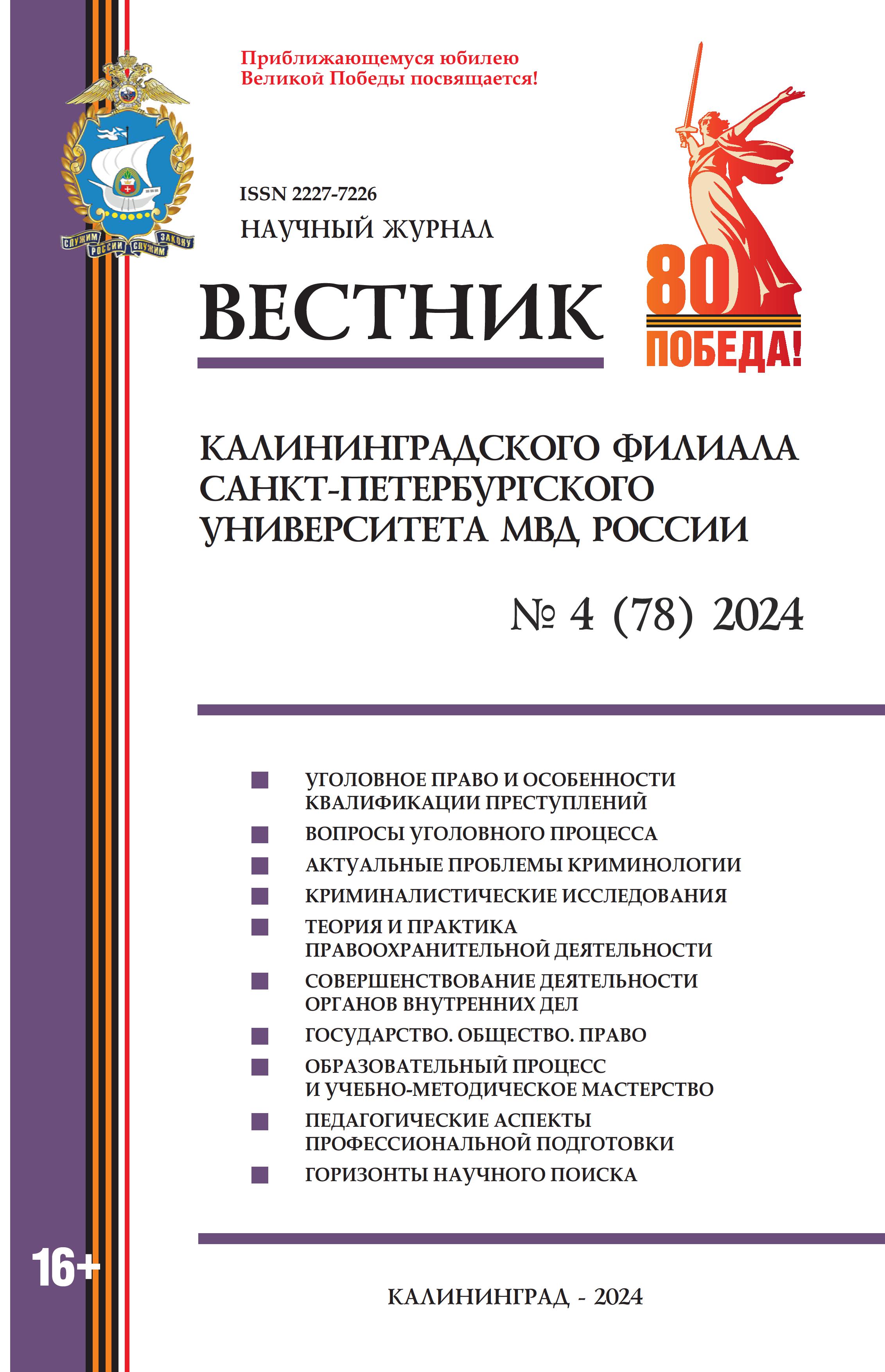Belgorod Law Institute of the MIA named after I.D. Putilin
Belgorod, Belgorod, Russian Federation
Introduction. A favorable moral and psychological climate in the work team, a high level of corporate culture and communicative competence of police officers, the absence of conflict situations or their rapid constructive resolution contribute to the successful fulfillment of professional tasks facing the internal affairs agencies. The possibilities of maintaining a healthy climate in the team also depend on such circumstances as the presence of conflictological competence among managers and employees, successful management of emerging conflicts through rational methods focused on a positive result, possession of mediation skills, the ability to quickly respond and find effective means of de-escalation of conflicts. In this regard, it seems interesting to study foreign experience in using mediation in resolving internal conflicts in structural units of the police. Mediation for these purposes, for example, has been actively used for several decades in the Federal Republic of Germany. However, mediation methods and techniques currently still do not have sufficient scientific justification, the development of standard models of their application is required, their modern understanding and consideration in an intercultural perspective is necessary. The author of the article has studied the theoretical foundations, legal grounds, differences in functions, competencies and procedures of mediation, which has shown high efficiency in resolving internal conflicts in the German police. Methods. General scientific and empirical methods of cognition were used in the course of the study. Results. The article describes the history of the emergence of mediation as an alternative method of extra judicial conflict resolution, reveals the causes of conflicts in the police unit. Foreign experience of using mediation in conflict management of the modern police as one of the effective strategies for resolving conflicts and establishing tolerant relations, focusing on human interests, is presented. The material of the article can be used for further research and, in particular, for the development of a standard mediation model and its development in the educational context.
Conflict, conflict management, conflictological competence, conflict resolution, mediation methods, mediator, conflict de-escalation, mediation processes.







